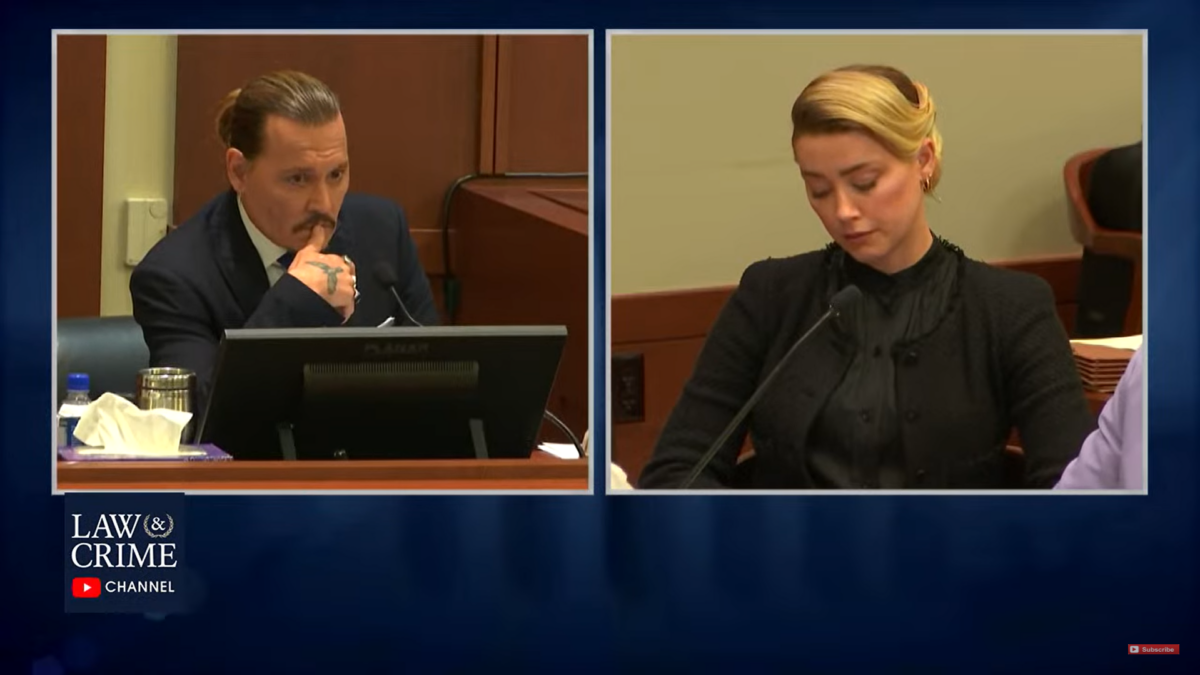If you’ve heard anything about the ongoing defamation trial between Johnny Depp and Amber Heard, you can tell their relationship was chaotic and both parties contributed to the dysfunction. Allegations have flown from both sides, but in one recording Heard appears to admit to physically hitting her ex-husband, then suggesting he should quit being a baby and absorb the abuse.
“I didn’t punch you. … I was hitting you; it was not punching you. You didn’t get punched, you got hit,” she said in a recording played in court. “But you’re fine, I did not hurt you. … You are such a baby, grow the f-ck up, Johnny.”
Johnny Depp expressing his displeasure with being hit made him a “baby” in Heard’s eyes — a phrase used as an overt attack on his manhood. This is often a gaslighting tactic used by abusers to legitimize their destructive behavior. When angry, abusive women may use men as their punching bags on whom they can unleash all their frustration and aren’t supposed to complain afterward.
Men amongst each other understand the real implications of violence, which is why we understand how important it is to be selective about engaging in it. We are raised to understand that while our physical strength means we carry the “big stick,” we must lean on speaking softly as a method of conflict resolution with other men.
However, how we engage with women is to always speak softly and pretend to have no stick. On average, men are taller and stronger than women. Because of our biological advantages, we’ve placed a higher level of responsibility (and consequences) on men to remain stoic at all costs and restrain themselves when interacting with women in moments of frustration.
Men have grown up hearing the phrase “There is never a reason to hit a woman,” and many of us would go as far as protecting a woman we don’t know from a man who has chosen to break this code of conduct. While it is socially unacceptable for a man to physically harm a woman, what about the inverse?
We all understand that an out-of-control man is a dangerous man because of his stature and his ability to overpower his female counterpart. But an out-of-control woman is just as dangerous to a man who has been bred to be tame no matter the circumstance.
Our physical stature gives the impression that we can easily withstand the impact of a woman’s beating but, despite our size, we still feel pain and we still bear the emotional toll. Even after a man heals from his scratches and bruises, he is still mentally affected by the lack of respect another human being displayed for his welfare. A once strong, proud man is now cowering in fear by the very person he was trained to protect.
We have a zero-tolerance policy for men striking women, meaning no matter how heinous or reprehensible the woman’s behavior was prior to being assaulted, the assault supersedes it. Yet female-to-male violence in our society treats men as physical specimens designed to withstand force instead of also being emotional creatures who deserve care and respect.
That double standard helps explain why we are still battling over how responsible Depp is for Heard’s apparent abuse, or for the emotional state which led her to it. We are socially still struggling with how to treat women as equals, not in just the positive aspects of our society but even in the negatives.
We’ve succumbed to the “women are inherently oppressed” narrative, to the point of possibly defending abusers. A woman like Heard was long granted legitimacy as a “voice for survivors,” while Depp struggled to get people to see what he appears to have been drowning in.









